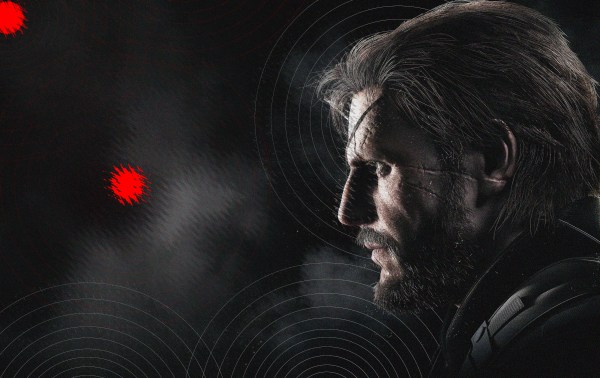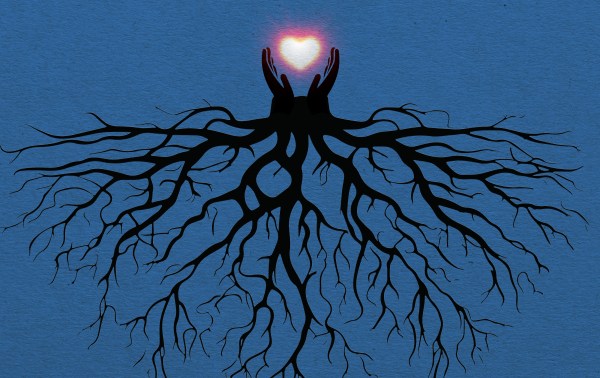Many of our most cherished Christmas carols celebrate, usually with emphatic joy, the coming of Christ. “O Come, O Come, Emmanuel” is different. Instead of declaring Christ’s advent, this hymn pleads for it, welling up from a deep yearning for a savior who will deliver his people: “From depths of hell Thy people save / And give them victory o’er the grave.”
“O Come, O Come, Emmanuel” derives from a far older cycle of Advent prayers called the O Antiphons. From the eighth century, the Western church has prayed these antiphons during Evening Vespers in the final days of Advent (December 17-23), calling out to the imminent Christ by a different title each evening. The vocative “O” resembles, in the words of theologian Oliver Treanor, “the womb of the Virgin in late pregnancy, round and full of Christ,” and each prayer calls out to the imminent Christ by a different title: O Wisdom, O Adonai, O Root of Jesse, O Key of David, O Rising Sun, O King of Nations, and finally, O Emmanuel.
These different prophetic titles given to Christ offer hearers multiple ways to receive the news of the gospel—that Christ came to atone for the sins of his people. Rich in symbolic imagery, history, and poetry, the O Antiphons speak to the mysterious and paradoxical nature of the Christmas story, in which an all-powerful God enters human history not in a blaze of almighty glory, but as a helpless child, out of wedlock, wrapped in swaddling clothes. He brought with him hope that is no longer elusive, distant, or celestial. Rather, it is as near as a baby, as author Katy Carl puts it, “as purple and slick, as silky and fragile and fragrant, as wonderful, as terrible, as awe-inspiring, as any couple’s first baby.”
The anguish and hope epitomized in these prayers are felt anew in every generation as we confront our own failures of wisdom, promise, and justice. They can give voice to our current moments of bewilderment: Brutal wars rage again in places like the Holy Land and Ukraine. As our own country seems intransigently divided on fundamental questions, the antiphons acclaim radical unity: not unity of thought, preference, or action, but the singular truth of salvation, human dignity, and God’s love for humanity.
On December 17, the church prays O Sapienta or, O Wisdom … You fill the universe and hold all things together in a strong yet gentle manner. O come to teach us the way of truth.
The prayer elucidates the moral fragmentation evident in our modern predicament: With religious belief continuing to decline, questions of morality around sexuality, community, and nationhood proliferate. At best, reckoning with these questions without the constraints of religious orthodoxy can lead to progress and inclusion. At worst, a society without a moral center has no mechanism for working through competing narratives and desires, leaving us in a fog of confusion and estrangement.
Into this scene of disorientation, the prayer calls down the one who, as the source of truth, binds what is broken and illuminates what is obscure. To pray this antiphon in our contemporary context is to cry out for healing of a particular modern psychological brokenness expressed by T.S. Eliot in The Waste Land, “Son of man, / You cannot say, or guess, for you know only / A heap of broken images.”
The embodiment of wisdom, the “Word made flesh,” brings clarity to a frayed sense of truth partly by rooting himself deep in the history of the Jewish people. The prayer, O Root of Jesse, you stand as a signal for the nations … O come to deliver us, and do not delay, uses the imagery of the branch and the vine to connect Jesus to the lineage of the House of David, the family in which God had promised that his messiah would appear.
Intoning Jesse and the Davidic line brings Christ right into the context of the multiple threats of annihilation that the Hebrew people faced in biblical times: the Assyrian invasion of Jerusalem in the eighth century B.C. for example, and the Babylonian exile centuries later. Reading the psalms written in relation to these events—“The enemy has laid waste the whole of the sanctuary … Their axes have battered the wood of its doors / They have struck together with hatchet and pickaxe”—it’s almost impossible not to picture the shattered and burned homes of those kibbutzim near the Gaza border on October 7, their doors broken in by Hamas.
Equally deep, the cries for deliverance in these prayers may call to mind the thwarted hopes of many contemporary Palestinians for refuge and homeland. The Christ invoked here challenges our instincts in his insistence that we see in Jew and Gentile, in Israeli and Palestinian, in leper and stranger and outcast alike, the same human dignity, the same sanctity, that he proclaims by his coming.
As Scripture demonstrates time and time again, Christ commits himself especially to the poor in spirit, those on the margins or in the darkness. On December 21—the winter solstice and the darkest night of the year—in a splendid marriage between nature and poetry, the church proclaims O Rising Sun, you are the splendor of eternal light and the sun of justice. O come and enlighten those who sit in darkness and in the shadow of death.
In the bleakness of winter, Christ becomes the rising sun of salvation. The Scottish composer James Macmillan set this antiphon to music in his majestic “O Radiant Dawn” in which the choral chant of “Come, come, come” almost breathlessly imparts the desperation of a people shrouded in despair. They long for the one who said in the book of Genesis, “Let there be light” over the face of the darkness, and of whom it was said, in the first chapter of John’s gospel, “In him was life, and that life was the light of all mankind. The light shines in the darkness, and the darkness has not overcome it.”
Light is not only a metaphor for life, as opposed to death; it is also what Augustine meant by “divine illumination.” He wrote in his Confessions, “The mind needs to be enlightened by light from outside itself, so that it can participate in truth, because it is not itself the nature of truth. You will light my lamp, Lord.”
In Christian theology, truth is deeply tied to justice. If darkness is the realm of sin, where humanity is estranged from God, then the dawning sun is Christ’s mercy, coming to save them not merely by delivering them, but by exposing their sins. Here the light of justice is merciful: more akin to the warm glow of a lamp than a blinding spotlight.
In the final title given to Christ in the antiphons, Emmanuel—God-with-us—humans are joined with God forever, as the hyphenation suggests. That God would take on human frailty, would suffer with humanity and in human flesh, is the basis upon which the logic of creation is radically upended: the wolf will live with the lamb, the last will be the first, and the meek will inherit the earth. In this new order even the most intractable human situations, in which hate or vengeance or greed seem destined to persist, become ripe for change.
Indeed, is there a more hopeless place than the cross on which Jesus hung: an instrument of torture and death? Yet as theologian Peter Waddell has written, in the Christian faith “the cross of Jesus, far from being yet one more place name on the roll call of human defeat, becomes a radiant place.” This remarkable transformative potential unleashed in human history—from death to life, from sin to salvation—becomes the basis of our own belief that even in the darkness of midwinter, we will live to see the splendor of a rising sun.
We are far from the first, and won’t be the last, generation to call out for God to, as one of the antiphons puts it, “come and save man whom you made from clay.” The promise alluded to in the prayers is not that the darkness will never close in on us, but that when it does, the dawn will break too, even in a manger, even on a cross, even in a tomb.
The antiphons insist on giving shape and voice to the human desire for peace and justice. They are radically unlike the language we are continually immersed in—rhetoric, protest, opinion, accusation. Instead, they supplicate, evoke, and beseech. They ask us to assume a posture that we seem to have forgotten: one of humility, down on our knees, with our eyes turned to the East.






Please note that we at The Dispatch hold ourselves, our work, and our commenters to a higher standard than other places on the internet. We welcome comments that foster genuine debate or discussion—including comments critical of us or our work—but responses that include ad hominem attacks on fellow Dispatch members or are intended to stoke fear and anger may be moderated.
With your membership, you only have the ability to comment on The Morning Dispatch articles. Consider upgrading to join the conversation everywhere.